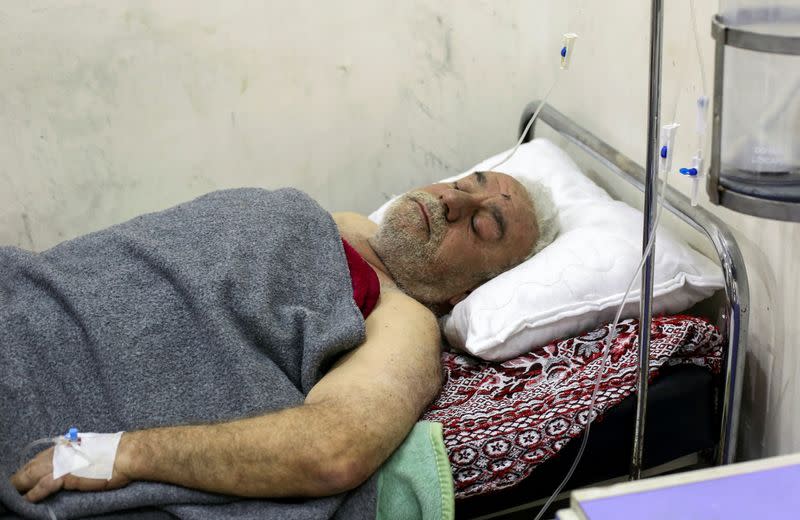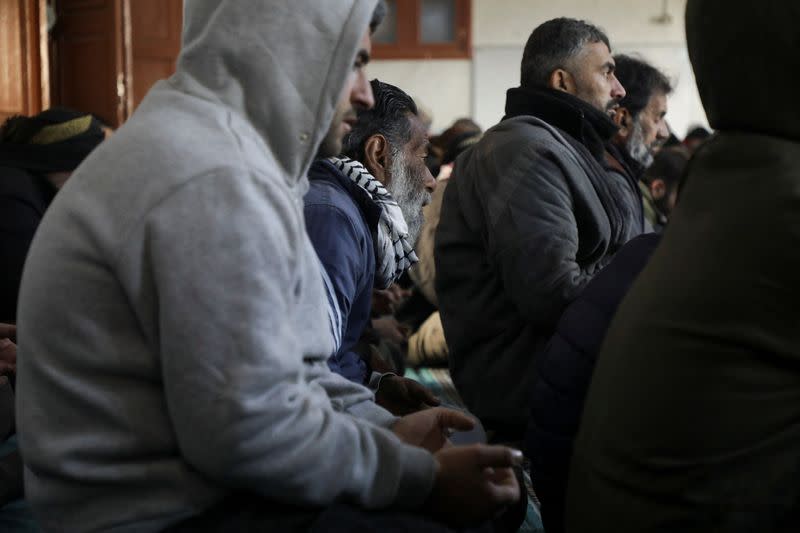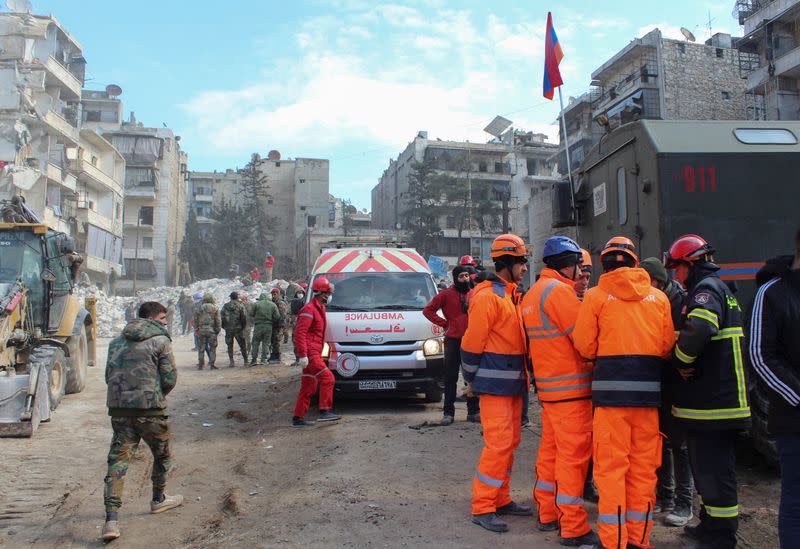In Syrian government areas, quake survivors and rescuers struggle
LATAKIA, Syria (Reuters) - The last thing Nuhad Dawoud heard before his home collapsed on top of him was the sound of his wife praying as the walls of their home shook in the early hours of Monday morning.
Lying in hospital, Dawoud says he emerged from the rubble three days later when he was able to crawl towards rescuers.
"They called to me, but my voice was weak... They didn't get to me until the third or fourth day," the 62-year-old man said at Tishreen hospital in the coastal city of Latakia, an area under government control during the nation's 12-year civil war.
Bad weather for the first two nights left Dawoud shivering and freezing. When the sky cleared, he saw a beam of light.
"It was dark under the rubble. I was crawling down there and wherever I crawled I would hit something. I told myself, 'When you see the light follow it.' When I saw some light I followed it, and then I got out."
Fighting back tears, Dawoud said emergency workers had found no trace of his wife.
Syrian and Russian teams have been working to rescue people in government-controlled parts of Syria, where more than 1,300 people were killed in the earthquake and 2,000 injured.
As in opposition-held parts of Syria where millions depended on aid even before the disaster, and in neighbouring Turkey, the scale of the destruction has been devastating.
Rescuers are short of heavy machinery to lift rubble.
President Bashar al-Assad's government has acknowledged shortcomings in its relief effort, blaming the consequences of 12 years of civil war and Western economic sanctions.
'WHERE DO WE GO?'
Assad visited a hospital in the northern city of Aleppo, the presidency said on Friday, in his first reported trip to a quake-hit area. He inspected damage and talked to people at their bedsides with his wife.
Sheltering the many thousands of people displaced from their destroyed or unsafe homes is also a huge challenge.
In the town of Jableh, south of Latakia, dozens of people, mainly women and children, have sought sanctuary in a mosque. Most have already been displaced at least once in the war which erupted in 2011 after protests against Assad.
Umm Mohamed moved from Aleppo in 2014, after years of fighting in what was Syria's main commercial city.
Her husband died during the war. One of her two daughters, already psychologically scarred by the sounds of warplanes, was further traumatised by the earthquake and now screams and cries at night, she said.
"The situation is very, very bad... If we want to leave here, where do we go, do we go to the streets?", said Umm Mohamed.
(Writing by Dominic Evans; Editing by Andrew Cawthorne)




